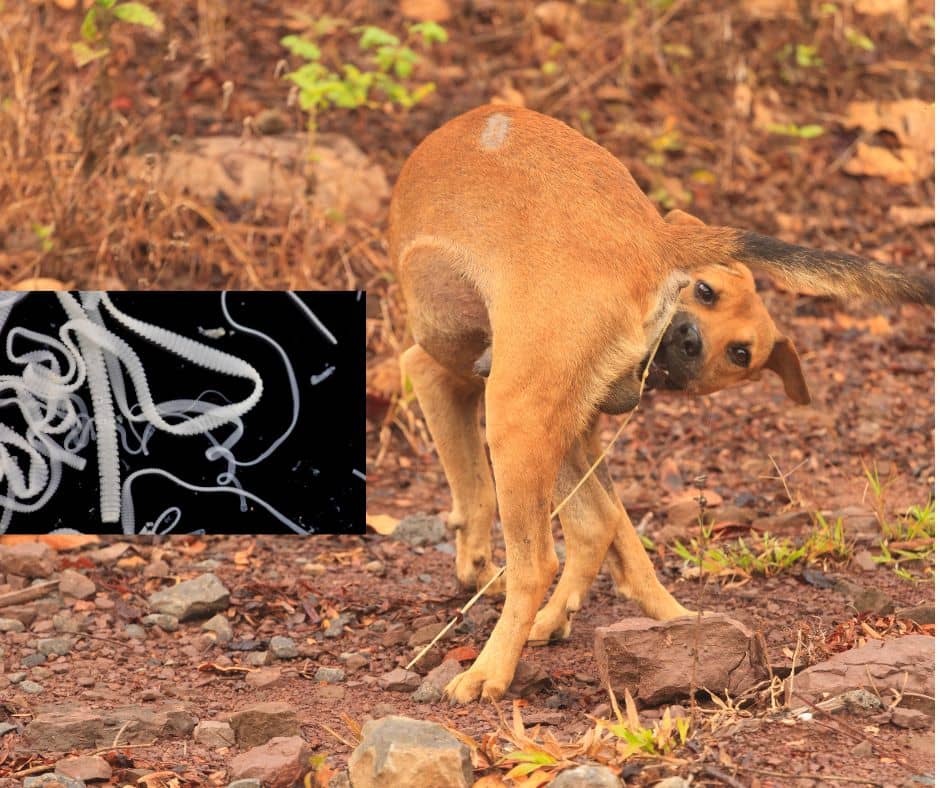
Minced vs Chunked Meat For Dogs: A Smart Feeding Guide for Pet Parents
Feeding your dog natural, whole foods isn’t just a trend, it’s a cornerstone of lifelong health. But when it

As a pet parent, understanding the risks and prevention of worms in your pet is crucial for their health and well-being.
In this comprehensive guide we’ll explore the different types of worms, how they affect pets, and the best ways to prevent and treat infestations naturally and conventionally.
The prevalence of intestinal parasites varies across Europe, with roundworms being the most common. In Ireland, for example, 17.6% of dogs and 23.2% of cats were found to have roundworms. Tapeworms affect less than 7% of both dogs and cats.
It’s important to note that stray animals generally have a higher prevalence of intestinal parasites compared to owned pets. Additionally, puppies and kittens are more susceptible to worm infestations.
Roundworms are one of the most prevalent intestinal parasites affecting both dogs and cats worldwide1. These long, white, spaghetti-like worms can cause significant health issues, especially in puppies and kittens.
Hookworms are another common parasite, with different species prevalent in various parts of Europe.
Tapeworms, such as the flea tapeworm (Dipylidium caninum), are widespread intestinal parasites affecting dogs and, less commonly, cats.
Lungworm is an increasingly prevalent parasitic infection in dogs across Europe, including Ireland. This parasite poses serious health risks and can even be fatal if left untreated.
While prevention is key, sometimes treatment becomes necessary. Here are some options:
Conventional dewormers: For severe infestations or certain types of worms (lungworms!), conventional medical treatment is unavoidable. Some of the safest options include: Panacur (Fenbendazole): A well-tolerated dewormer with minimal side effects, Mebendazole (Vermox, DeWorm): Effective against various worms with mild gastrointestinal side effects, Drontal Plus: A broad-spectrum dewormer that is generally safe when used as directed.
Overuse of dewormers can lead to anthelmintic resistance, meaning the medications may become less effective over time. This is already a major issue in livestock and is beginning to affect companion animals. To help prevent resistance:
Worms are an unavoidable part of a pet’s life, but with proper prevention and timely treatment, you can keep your furry friend safe and healthy. Whether you choose natural remedies, conventional medications, or a combination of both, staying informed and proactive is the key to managing parasites effectively.
For a more detailed guide on natural worm prevention and treatments, download my free PDF on holistic deworming strategies here!

Feeding your dog natural, whole foods isn’t just a trend, it’s a cornerstone of lifelong health. But when it

As a naturopathic vet, I’ve seen many pets transform their health through homeopathy. From anxious dogs finding peace to allergy-suffering

What if the very medicine meant to heal your beloved pet was actually making them sicker? That was the

When it comes to your dog’s health, vaccinations are one of the most debated topics. Should you vaccinate, or could

When shopping for dog food, the packaging may seem informative, but decoding what the labels actually mean can be challenging.

Itchy skin in dogs, known medically as pruritus, is not just an annoying habit for your pet—it’s often a sign

As a naturopathic vet, my focus is on natural and holistic approaches to pet health. However, I also recognize the

Only €14 for the first 100 dog parents 🐶
Then price increases to €19
💚 Natural remedies
📄 Step-by-step protocols
🖨️ Printable cheat sheets

Cat Nutrition
Learn about the nutritional needs of cats, why processed foods can be harmful, and get practical tips on how to create a healthy diet for your feline friend.